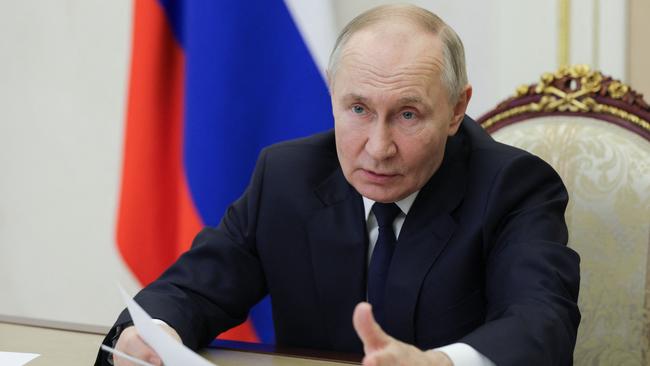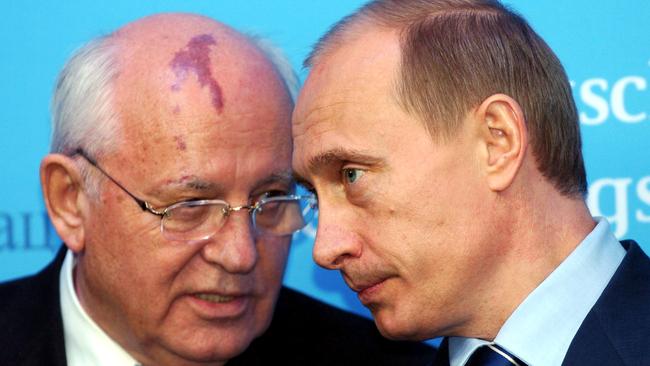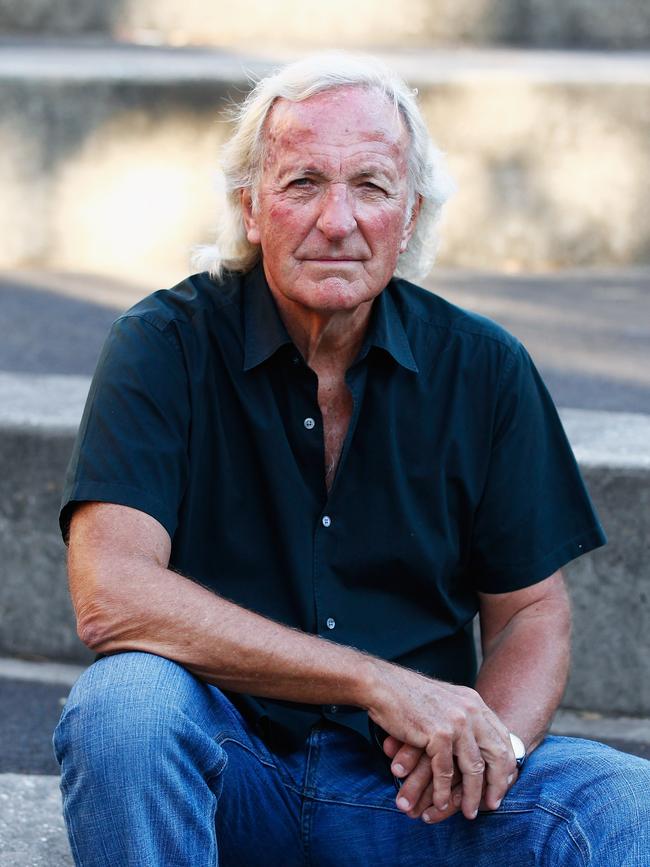Only NATO threat to Putin is to his imperialist fantasy

Its security needs have been trampled. Ergo, its invasion of Ukraine is justified.
I’ve heard this vaporous nonsense from a John Pilger-allied baby boomer lefty, and, writing in these pages last year, a career conservative.
I expect to hear it repeated by Donald Trump, and soon, as a pretext for ending the war on Vladimir Putin’s terms – with a 20 per cent swath of Ukraine in Russian hands – so the world can get back to business.
Putin’s we-were-dudded narrative starts with the chaos following the unanticipated fall of the Berlin Wall in the autumn of 1989.
German, Russian and American diplomats were struggling with the demands of German reunification and European security amid the fog, as it were, of peace.
As the world was being reinvented, the Americans pledged not to move NATO “an inch” further east, according to Moscow.
In return the Soviets gave the green light for German reunification. This, naturally, meant a Soviet withdrawal – of both troops and nukes – from East Germany.
The Russians claim that by keeping to their side of the bargain and withdrawing peacefully from East Germany they were duped as NATO, in the coming years, did indeed “inch” – or rather leap – further eastward.
Today it’s a 32-strong defensive umbrella over Mediterranean Europe, central and eastern Europe, the UK, and the high north – Sweden’s accession in March last year being the most recent. NATO’s reach, underlined by the famous one-in-all-in article 5 collective security guarantee, clearly nettles Putin.
As far back as 2007 the Russian President was moaning: “What happened to the assurances our Western partners made after the dissolution of the Warsaw Pact?” NATO extension was, he said, a “serious provocation”.
More ominously still, Putin declared in December 2021, as Russian forces massed on the Ukrainian border in preparation for the fateful February 24 invasion: “They cheated us – vehemently, blatantly. Five waves of NATO expansion. And there you go – they’re now in Romania and Poland, with weapons systems.”
Putin was tying what would become his “special military operation” to the putative threat of a Ukraine protected by article 5.
American post-Cold War historian Mary Sarotte has examined formerly classified documents from 1989-90 to clarify what was said, or pledged, and to whom, in those years.
Is there any truth to Moscow’s narrative of broken promises and betrayal? Or are US denials – some voices in Washington claim NATO was never even mentioned in these negotiations – closer to the mark?
Sarotte concluded that the concept of a frozen NATO – an alliance that would not extend “one inch” eastward – was certainly floated in negotiations.
Mikhail Gorbachev made his position clear: “Certainly any extension of the zone of NATO would be unacceptable.”
But when the plan for a frozen NATO was put at Camp David to US president George Bush, he was emphatic: “To hell with that! We prevailed, they didn’t. We can’t let the Soviets clutch victory from the jaws of defeat.”
Gorbachev, facing mounting problems at home, eventually acquiesced to Bush’s line: a reunified Germany would henceforth sit within NATO and there would be no meaningful restrictions on the alliance’s enlargement.

The quo for this quid came in the form of West German financial assistance for Russia: the equivalent of €6bn.
There was, in addition, an agreement not to station NATO nuclear assets or foreign troops in the former East Germany; an agreement that holds to this day.
The picture that emerges from Sarotte’s research is shaded grey around the edges, but at the core it’s black and white: there was no deal. And yet Moscow’s betrayal narrative still has legs. Its legitimacy is reinforced by a pointed warning delivered in 1997 by career diplomat George Kennan, architect of the Cold War policy of containment, that “expanding NATO would be the most fateful error of American foreign policy in the entire post-cold war era”.
It’s largely forgotten, however, that as far back as 1948 Kennan opposed a permanent military alliance in Europe. It would, he believed, hinder the containment of Soviet Russia; a goal best achieved through economic, political and psychological means.
Kennan opposed the creation of NATO, and he was always going to oppose more NATO.
NATO might seem on face value to have been an instrument of American power projection. But the initiative, as Cold War historian John Lewis Gaddis has stressed, “came from the West Europeans themselves”.
Fear was the primary impetus for the alliance. Fear focused on the tangible disparity of Soviet to Western forces in Eastern and Central Europe. Fear heightened by the Berlin Blockade of 1948 and, in the same year, the Soviet-backed coup in Czechoslovakia.
Moscow regularly inveighs against the “decadent” West but the corruption is, I suspect, more intellectual than ethical.
The left and the right have been suckered in by a textbook case of Orwellian “doublethink” and now see NATO, an alliance formed to defend Europe from Russian expansion, as an expansionist league from which Russia must defend itself – if necessary, by acts of extreme brutality.

Just as forgetting is the precondition for this kind of up-ended reality – as Orwell put it, “to forget whatever it was necessary to forget” – memory is the antidote.
Former Estonian prime minister Kaja Kallas, the EU’s head diplomat, speaks from experience when she recalls Estonia’s attempts, after it had escaped almost a half century of Soviet occupation, to gatecrash NATO.
“We had a short period of time where Russia was weaker,” says Kallas, whose father was Estonia’s foreign affairs minister from 1995-96 and prime minister from 2002-03. “A brief window. We thought, ‘We won’t be alone again because being alone means being occupied by Russia’.
“We worked so hard to get into NATO. It’s not that NATO wanted to expand. It wasn’t at NATO’s initiative; it was ours. They didn’t want us in for a long time.”
NATO, she insists, poses no threat to Russia. Or, rather, it’s a threat in one specific sense. “It’s a threat to Russian imperialism.”
Luke Slattery is a journalist and writer.



The Kremlin propaganda point that seems most attractive to extremists on the left and the right views Russia as a victim of NATO enlargement.